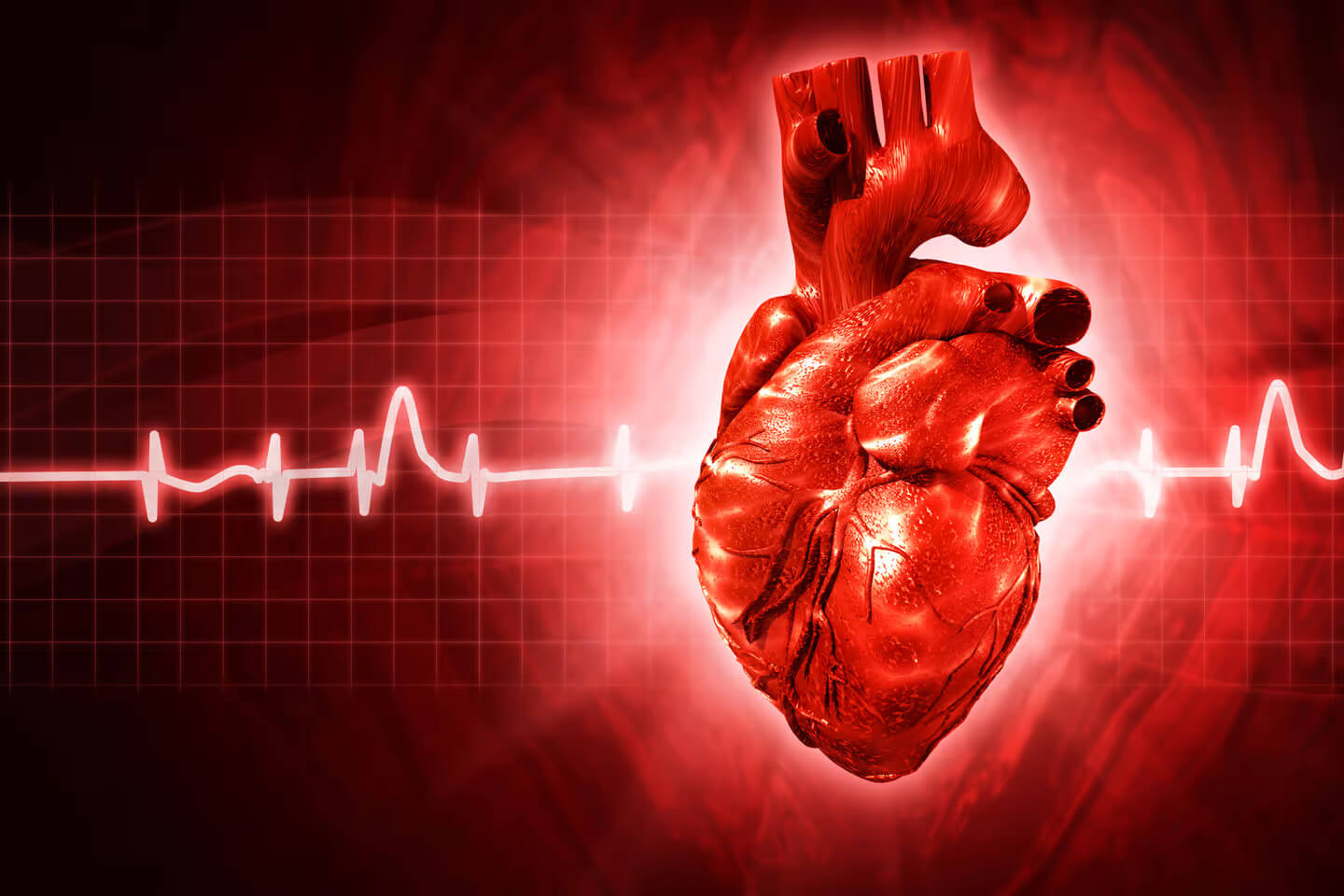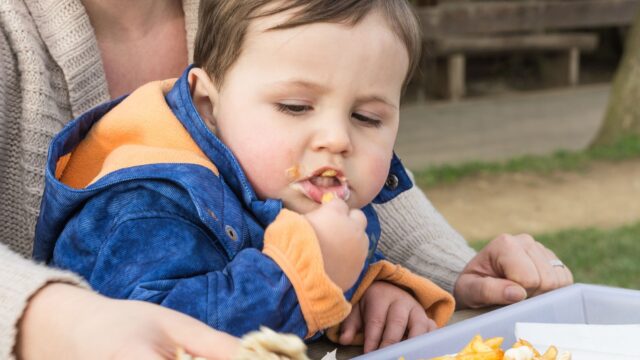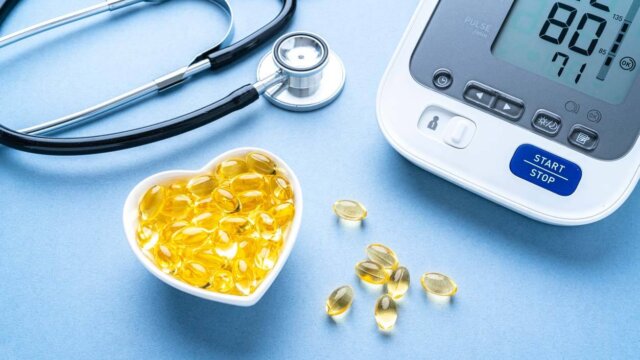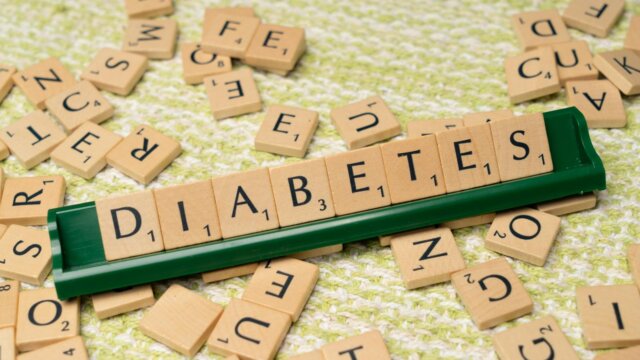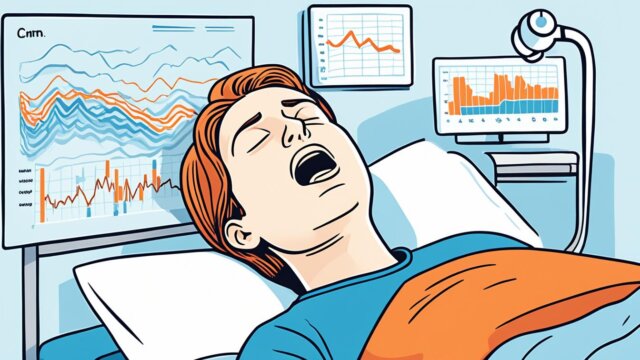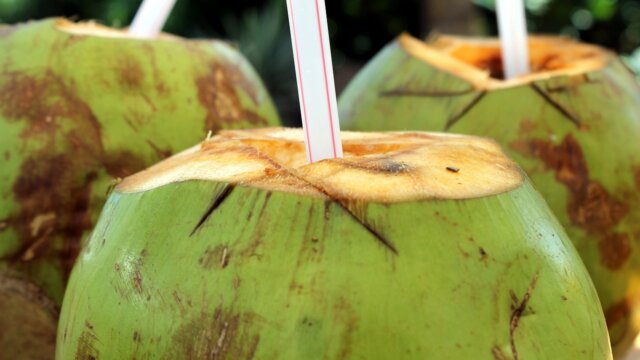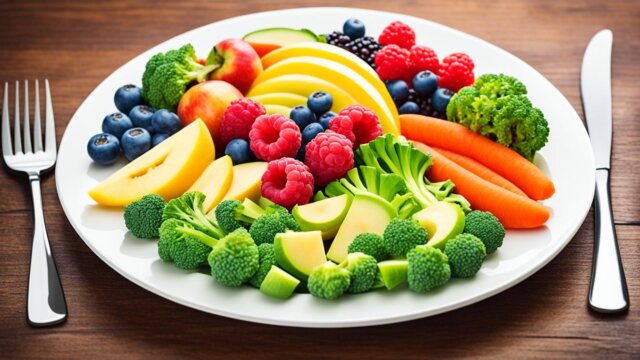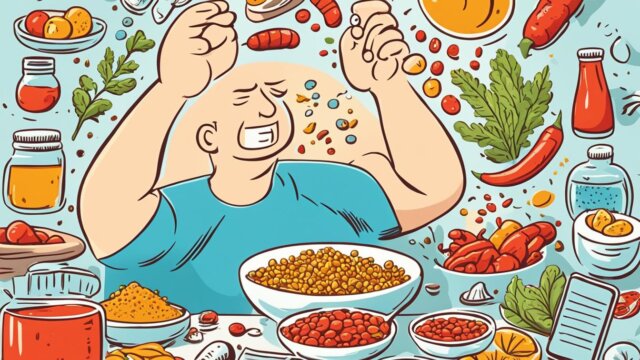FTC disclaimer: This post may contains affiliate links and we will be compensated if you click on a link and make a purchase.
Heart palpitations after eating can be termed a condition in which one feels like their heart is beating harder than normal. It can also be termed a situation where you feel like your heart is skipping a beat or beating faster.
Heart palpitations after eating are usually felt at the neck or sometimes in the stomach. Usually, there is no cause for alarm, but it may also be a sign of a failing heart.
Heart palpitations after eating is usually normal as it indicates the digestion process has started, and therefore a lot of blood is being pumped to aid in the body function.
The digestion process is complicated as the body has to break down the food consumed, and they are finally absorbed into the system. It is a process that requires the stomach to work hard, and therefore more blood supply is needed in that area.
Heart palpitations after eating are very normal though not everybody will experience them. Most people who have experienced it say they usually have a feeling of being tired when it happens.
Some say they are left yawning and that they are usually fatigued. The condition may also result in a feeling of tightness in the chest, accompanied by nausea and sometimes dizziness.
Let’s look into the details about what heart palpitations after eating mean and their causes, symptoms, and treatment.
What are heart palpitations after eating?
The condition of heart palpitations after eating is when a person feels that his heart is ‘racing’ after a meal. This may be felt immediately after a meal or may start while the person is still eating.
Heart palpitations after eating are a common complaint in overweight people and sometimes in recovering anorexic patients.
Heart palpitations after eating are normal after having a meal because the heart needs to pump more blood to the stomach and adjoining areas. Thus, it needs to bring about an increase in the blood supply to the stomach to assist the process of digestion.
This is important since increased blood flow in the abdominal region immediately after a meal helps digestion and assimilation of food. Hence, for some people, this routine activity of the heart could manifest as heart palpitations.
One can follow specific guidelines to help prevent heart palpitations after eating and keep the heart health in good condition.
Regular meals in small portions help energize the body on a timely basis and thus, prevent any sudden spurt of hormonal activity that may cause irregularities in the functioning of the heart.
Moreover, one can get a regular check-up to look out for hormone levels and check on the body’s iron levels. Also, reduce sugar and coffee and use breathing techniques to reduce stress.
If the heart palpitations after eating symptoms worsen with time, it is best to get a full cardiac scan done using a Holter monitor.
Thus, to keep the heart palpitations after eating at bay, ensure that you follow a healthy lifestyle, with a good and nutritious diet supplemented by regular exercise.
Foods that can cause heart palpitations
There are many different foods that you can eat that may cause heart palpitations.
Stayed without eating for a long time
Heart palpitations after eating can be felt if you have stayed for long without eating; therefore, a sudden food intake will tend to increase cardiac activity.
Caffeinated food and drinks
Foods that can cause heart palpitations are caffeinated food and drinks, sugar, alcohol, tyramine-rich food, and theobromine-rich food.
Moreover, foods high in sodium, carbohydrates, or monosodium glutamate (MSG) can lead to heart palpitations.
Excess sodium
Sodium is a mineral found in salt and can cause the body to retain fluids. This can increase the pressure on the heart and lead to heart palpitations.
Foods high in sodium include processed meats, canned soups and vegetables, fast food, and frozen meals.
Simple carbohydrates
Carbohydrates are another factor that can contribute to heart palpitations. When consumed in large quantities, carbohydrates can cause a rapid spike in blood sugar levels. This can put stress on the heart and lead to heart palpitations.
Additives and preservatives
Monosodium glutamate (MSG), a flavor enhancer found in many processed foods, can also cause heart palpitations.
Tyramine-rich foods such as aged cheese, smoked fish, and cured meats can cause a release of norepinephrine that leads to a rapid heartbeat.
Theobromine-rich foods such as dark chocolate can cause heart palpitations by increasing heart rate and blood pressure.
Caffeine, sugar, and alcohol
Caffeine can increase heart rate and blood pressure, leading to heart palpitations.
Consuming too much sugar can also lead to heart palpitations by causing a rapid rise in blood sugar levels.
Alcohol consumption can cause irregular heartbeat. Moreover, research has indicated that even a small amount of alcohol can lead to an irregular heartbeat.
Consumption of fatty foods can also lead to this as the body will require more blood supply to break down the fats.
If you experience heart palpitations after eating certain foods, try eliminating those foods from your diet to see if your symptoms improve.
If they do, you know that those foods are causing your problems. Talk to your doctor if you’re concerned about specific foods’ effects on your heart health.
Medical conditions causing heart palpitations after eating
Many people experience heart palpitations after eating, but the cause might not be what you think.
Allergies or asthma
In some cases, medical conditions can be the root of the problem. For example, those with allergies or asthma may find their symptoms exacerbated after eating.
Arrhythmia and other heart conditions
A common cause of palpitations after eating is an underlying arrhythmia. This can be treated with medications that stabilize the heart rate, like beta-blockers and calcium channel blockers.
An underlying heart condition or abnormality can also cause palpitations after eating. Some medications that can have this effect are digoxin, lithium, and amiodarone.
Edema
Edema is a condition that occurs when your body holds too much water within your tissues. Moreover, Edema can cause you to feel heart palpitations after eating because it causes your heart to pump harder than normal.
Obesity and overweight
It is important to note that people suffering from obesity are also likely to suffer from this condition due to either overconsumption or intake of fatty foods that require increased cardiac activity during digestion.
Stress and hormonal imbalance
Heart palpitations after eating may also result from stress and hormonal imbalance. Various body malfunctions may cause this.
Stomach Discomfort
If you are suffering from Heart palpitations after eating, it may result in restlessness due to stomach discomfort.
If you are experiencing heart palpitations after eating, you must consult your doctor to determine the cause and receive appropriate treatment.
What medications can cause heart palpitations after eating?
Certain heart disease medications, high blood pressure, and thyroid medications can trigger heart palpitations.
Cold medicines and thyroid medications can also cause heart palpitations in some people.
Antibiotics are another potential cause; they can disrupt the natural balance of gut bacteria, leading to problems like heart palpitations.
Moreover, a rapid heartbeat is caused by an overdose of over-the-counter medications or recreational drugs.
If you are experiencing heart palpitations after starting a new medication, talk to your doctor about whether or not the medication could be responsible.
They may be able to recommend a different medication that doesn’t cause this side effect.
Additionally, it is important to monitor your symptoms and let your doctor know if the heart palpitations are becoming more frequent or bothersome.
What supplements can cause heart palpitations after eating?
If you experience palpitations after eating, there are many possible causes. Sometimes it is due to taking certain supplements or vitamins that can cause palpitations.
Some common vitamin and supplement-related causes of heart palpitations include:
- Vitamin B12 deficiency
- Iron overload
- Caffeine dependence
- Vitamin A overdose
- Protein deficiency
- Vitamin D deficiency
- Sodium overload
Symptoms of heart palpitations after eating
Several symptoms could indicate you are having heart palpitations after eating.
These include:
- Constriction or tightness in the chest
- Feeling like your heart is going to burst or stop
- Heart pounding, throbbing, or skipping
- Chest pain or pressure that starts and stops
- Chest pain with exercise or sexual activity
The most common symptom of a heart palpitation after eating is chest discomfort. This symptom typically occurs due to an irregular heartbeat and can come in waves.
Your discomfort could involve chest pressure, tightness, or pain that comes and goes. As these symptoms occur, your heartbeat will often increase and decrease rapidly.
The discomfort may also worsen when you stand up quickly from sitting or exercising.
Treatment for heart palpitations after eating
Treatment through medication
There are several different treatments for heart palpitations after eating. One of the most common treatments is medication.
Suppose you have a family history of arrhythmias. In that case, your doctor may prescribe beta-blockers which help regulate the heart rate and reduce the risk of cardiac fibrillation. In this condition, the muscles of your heart no longer contract properly and can lead to fatal heart failure.
Your doctor will also typically prescribe anti-hypertensive medications which control blood pressure and reduce the risk of stroke or heart attack.
Other treatments for palpitations include stopping certain drugs that can cause heart palpitations and avoiding certain foods that can cause palpitations after eating.
Lifestyle changes
Treatment for palpitations after eating may include lifestyle changes to help reduce the risk, such as reducing alcohol intake and limiting caffeine consumption.
Avoiding certain types of food may help prevent future episodes in some people, but this is not always true.
A physician can determine if lifestyle changes are necessary to control your symptoms based on your particular health needs and dietary habits.
Prevention for heart palpitations after eating
If you are experiencing heart palpitations after eating, you can take a few steps to prevent them.
Consumption of too much caffeine, alcohol, and sodium can cause heart palpitations, and consuming large amounts of these substances can increase the risk for cardiac arrhythmias.
When it comes to food, you should always know what your body tolerates and even have an idea of what would suit your health.
It is always good to watch for potential triggers that may cause palpitations after eating and adjust your diet accordingly.
For Example: Eating certain types of food (such as salt), consuming drinks with caffeine, excessive alcohol consumption, drug use, and lack of sleep.
You’ll also want to avoid foods that contain additives and preservatives that contribute to heart palpitations, such as
- Artificial colors and flavors
- Nitrates and sulfites
- MSG
- Preservatives such as BHA/BHT or sorbic acid
- Partially hydrogenated oils (trans fatty acids)
- Polysorbate 80 or other emulsifiers
- Phosphate additives or phosphoric acid.
You should also avoid white sugar (saccharose) because it contains Levulose, a form of sorbitol that has been shown to cause increased blood pressure levels in people who consume it regularly.
The bottom Line
Many things can cause heart palpitation after eating. It is important to identify the cause to get the proper treatment.
Most cases of heart palpitation after eating are not severe and can be treated with lifestyle changes or medication.
However, if heart palpitation after eating is accompanied by other symptoms, it is important to see a doctor immediately.
